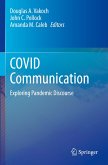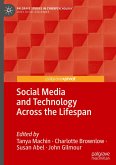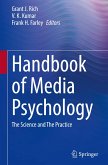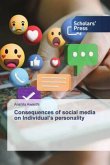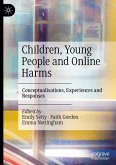This book focuses on how we understand COVID-19-medically, socially, and rhetorically. Given the expectation that other flu pandemics will occur, it stresses the importance of examining how the public response is shaped in the face of global health emergencies. It considers questions such as how can pandemic language both limit and expand our understanding of disease as biomedical, social, and experiential? In what ways can health communication be improved through the study and application of rhetoric and the health humanities? COVID Communication fills a gap in the pandemic literature by promoting interdisciplinary analysis of communication methods, realized through a health humanities approach. It centers human experience and culture within conversations about the biological reality of a pandemic. This volume will be a welcome contribution to the scientific investigations and practice of psychology and public health professionals.
Interdisciplinary perspectiveNewinsights on how a pandemic is understoodHighlights the relevance to important usually neglected relevance for psychology and public health professionals
Endorsements of COVID Communication
"In an era of the COVID-19 pandemic crisis, COVID Communication provides a smart, urgent alternative to our collective downward spiral, not only offering a fiery critique of our selfish and self-destructive present but also providing galvanizing, positive visions of what futures we might hope for." - Shailendra Saxena, King George's Medical University, India; editor of Coronavirus Disease 2019 (COVID-19): Epidemiology, Pathogenesis, Diagnosis, and Therapeutics "COVID Communication shows that the pandemic affects us not only because it makes us sick or ruins our economy, but also because of howit is spoken, written, and thought about, ultimately because of how it is socially constructed. An original and very necessary look to arm ourselves intellectually against the pandemic." - Alberto del Campo Tejedor, Pablo de Olavide University, Spain; author of La infame fama del andaluz "The COVID-19 pandemic represented a global challenge that needed nations and their people to come together, find a joint response, and build a narrative that was clear, consistent, inclusive, and respectful of people. The reality, however, is that the responses to the pandemic reflected the ideologies of national leaders, political leaders, media outlets, and activists, leading to a fragmented and at times polarized global discourse. This important work examines the different narratives that circulated within the information environment to explore how these may have led to differing levels of trust in politicians, in science, and in one another. Through an analysis of rhetoric across diverse nations and platforms, the chapters provide a framework that is crucial for understanding the interplay between discourse, cognition, and behavior." - Darren Lilleker, Bournemouth University, UK; co-editor of Political Communication and COVID-19: Governance and Rhetoric in Times of Crisis "This book presents a collection of must-read scholarly chapters that illustrate a panoramic view of how people from different countries and cultures communicate about this global pandemic. These chapters paint a rich canvas of thoughts, emotions, reactions, and actions through communication expressions, ranging from intuitive rhetoric and probing cartoons to emotional memes and creative advertising. The book is a great resource for aiding health communication scholars, instructors, professionals, journalists, and studen
Interdisciplinary perspectiveNewinsights on how a pandemic is understoodHighlights the relevance to important usually neglected relevance for psychology and public health professionals
Endorsements of COVID Communication
"In an era of the COVID-19 pandemic crisis, COVID Communication provides a smart, urgent alternative to our collective downward spiral, not only offering a fiery critique of our selfish and self-destructive present but also providing galvanizing, positive visions of what futures we might hope for." - Shailendra Saxena, King George's Medical University, India; editor of Coronavirus Disease 2019 (COVID-19): Epidemiology, Pathogenesis, Diagnosis, and Therapeutics "COVID Communication shows that the pandemic affects us not only because it makes us sick or ruins our economy, but also because of howit is spoken, written, and thought about, ultimately because of how it is socially constructed. An original and very necessary look to arm ourselves intellectually against the pandemic." - Alberto del Campo Tejedor, Pablo de Olavide University, Spain; author of La infame fama del andaluz "The COVID-19 pandemic represented a global challenge that needed nations and their people to come together, find a joint response, and build a narrative that was clear, consistent, inclusive, and respectful of people. The reality, however, is that the responses to the pandemic reflected the ideologies of national leaders, political leaders, media outlets, and activists, leading to a fragmented and at times polarized global discourse. This important work examines the different narratives that circulated within the information environment to explore how these may have led to differing levels of trust in politicians, in science, and in one another. Through an analysis of rhetoric across diverse nations and platforms, the chapters provide a framework that is crucial for understanding the interplay between discourse, cognition, and behavior." - Darren Lilleker, Bournemouth University, UK; co-editor of Political Communication and COVID-19: Governance and Rhetoric in Times of Crisis "This book presents a collection of must-read scholarly chapters that illustrate a panoramic view of how people from different countries and cultures communicate about this global pandemic. These chapters paint a rich canvas of thoughts, emotions, reactions, and actions through communication expressions, ranging from intuitive rhetoric and probing cartoons to emotional memes and creative advertising. The book is a great resource for aiding health communication scholars, instructors, professionals, journalists, and studen



